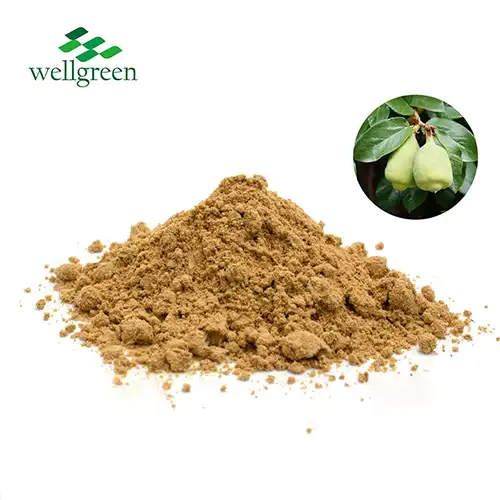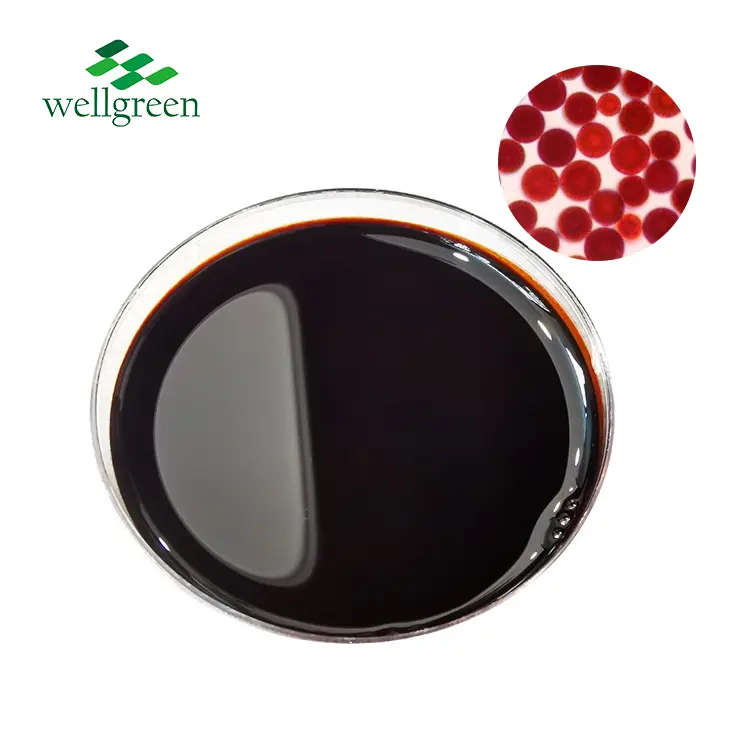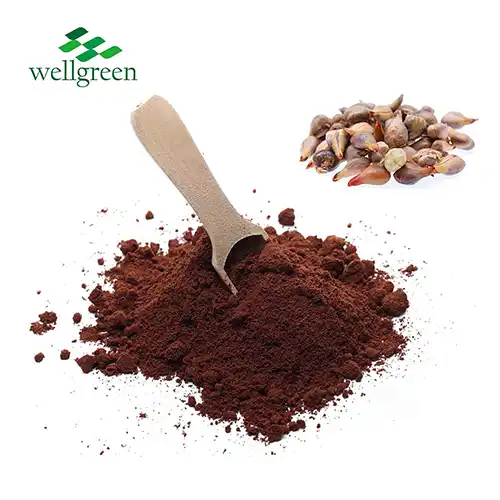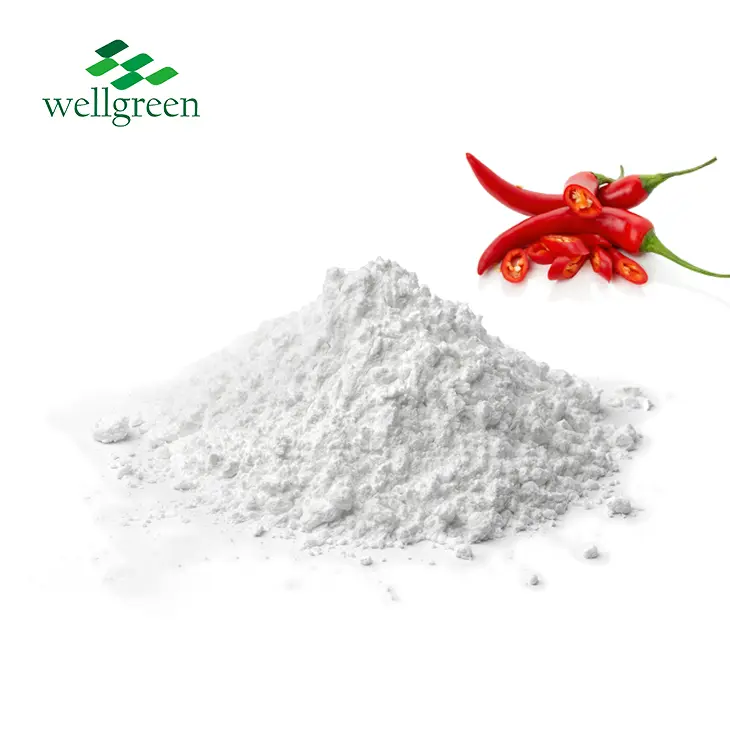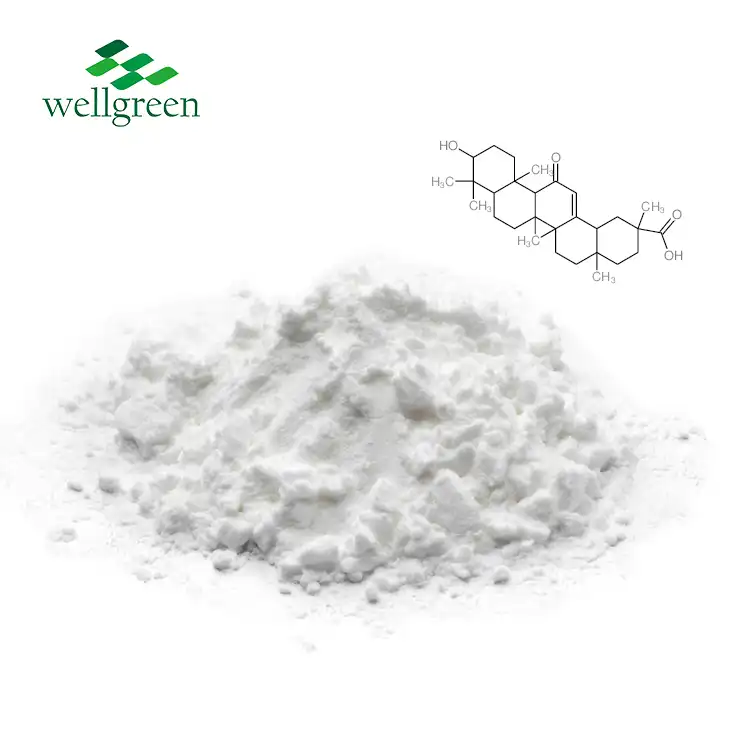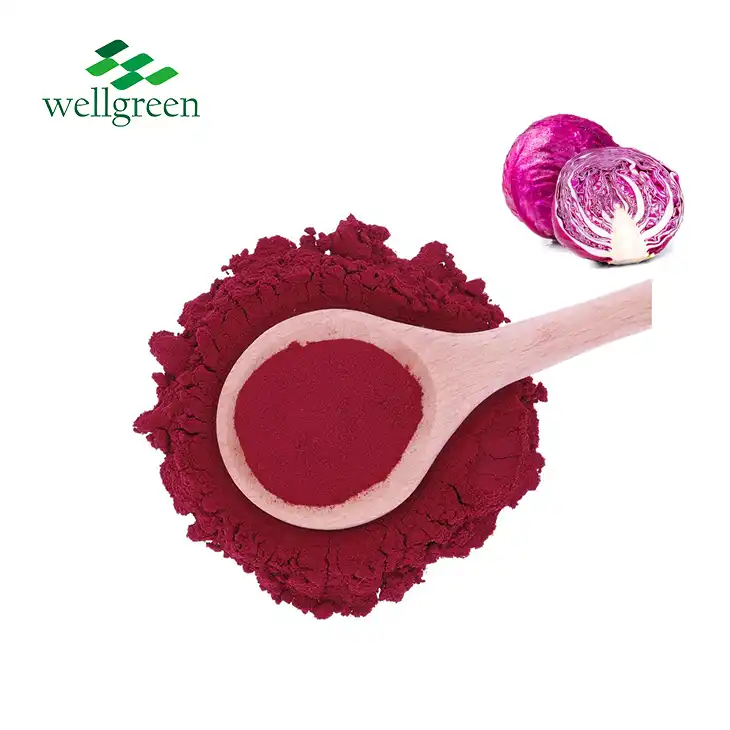Is Prunus Japonica Extract Effective for Anti-Inflammatory Purposes?
2024-07-12 15:31:31
The potential anti-inflammatory properties of Prunus Japonica, also known as the Japanese bush cherry, have gained attention in the health and wellness community. This blog investigates the viability of Prunus Japonica extract in fighting irritation, diving into logical examinations and narrative proof to give a complete outline.
How Does Prunus Japonica Extract Work to Reduce Inflammation?
The abundance of bioactive compounds found in Prunus Japonica extract, such as polyphenols, flavonoids, and terpenoids, is primarily responsible for the product's anti-inflammatory properties.
These mixtures are known for their capacity to adjust fiery pathways and decrease oxidative pressure.
Polyphenols and Flavonoids
 The polyphenols and flavonoids in Prunus Japonica extract's anti-inflammatory properties have been extensively studied. Inflammation can be reduced in a variety of ways by these substances:
The polyphenols and flavonoids in Prunus Japonica extract's anti-inflammatory properties have been extensively studied. Inflammation can be reduced in a variety of ways by these substances:
1. Scavenging Free Radicals: Solid cancer prevention agents like flavonoids and polyphenols battle free revolutionaries, which are whimsical substances that can harm cells and set off incendiary responses. By scavenging these free radicals, these substances help protect cells from oxidative stress, a major cause of chronic inflammation.
2. Inhibiting Pro-Inflammatory Cytokines: Cytokines are flagging particles that intercede and direct invulnerability and irritation. Pro-inflammatory cytokines like interleukin-6 (IL-6), interleukin-1 beta (IL-1β), and tumor necrosis factor-alpha (TNF-α) can be inhibited by polyphenols and flavonoids. By lessening the levels of these cytokines, Prunus Japonica extract assists with hosing the fiery reaction.
3. Changing the NF-κB Pathway: Inflammation is largely controlled by the nuclear factor kappa light chain enhancer of activated B cell (NF-κB) pathway. Actuation of NF-κB prompts the declaration of different incendiary qualities. Polyphenols and flavonoids in Prunus Japonica can repress the NF-κB pathway, in this manner forestalling the record of supportive of provocative qualities and decreasing aggravation.
4. Enhancing Anti-Inflammatory Cytokines: As well as decreasing favorable to fiery cytokines, these mixtures can likewise improve the development of calming cytokines like interleukin-10 (IL-10). Inflammation can be reduced and wound healing can be accelerated by altering the cytokine balance.
Terpenoids
Terpenoids, another class of compounds found in Prunus Japonica extract, also contribute to its anti-inflammatory properties. Terpenoids such as lupeol and squalene have shown significant anti-inflammatory effects through various mechanisms:
1. Inhibition of Key Enzymes: Key inflammatory-related enzymes like cyclooxygenase-2 (COX-2) and inducible nitric oxide synthase (iNOS) can be inhibited by terpenoids. COX-2 is a catalyst that produces prostaglandins, which are lipid intensifies that add to aggravation and agony. An enzyme called iNOS makes nitric oxide, a free radical that can make inflammation worse. Terpenoids reduce the production of inflammatory mediators by inhibiting these enzymes.
2. Suppression of Inflammatory Mediators: Terpenoids can likewise smother the statement of different provocative arbiters, including prostaglandins, leukotrienes, and nitric oxide. This suppression helps alleviate the symptoms of inflammatory conditions and reduces inflammation at the cellular level.
3. Modulation of Immune Response: By altering the activity of immune cells like macrophages, T cells, and neutrophils, terpenoids can alter the immune response. These cells assume a vital part in starting and supporting irritation. By tweaking their movement, terpenoids assist with controlling the insusceptible reaction and forestall inordinate aggravation.
4. Antioxidant Activity: Terpenoids, like polyphenols and flavonoids, are antioxidants that help shield cells from oxidative stress. By reducing cellular damage and preventing the activation of inflammatory pathways, this antioxidant activity further contributes to their anti-inflammatory effects.
What Are the Benefits of Prunus Japonica Extract for Inflammatory Conditions?
The anti-inflammatory properties of Prunus Japonica extract offer several potential benefits for managing various inflammatory conditions.
Joint and Muscle Inflammation
Quality of life can be significantly affected by inflammatory conditions like arthritis and muscle soreness. Prunus Japonica extract's capacity to decrease aggravation can be especially advantageous in these cases. Extracts have been shown to reduce joint inflammation and pain, alleviating arthritis symptoms, in studies on related species like Prunus africana. Although there aren't many studies on Prunus Japonica, its similar phytochemical profile suggests that it might be effective in treating joint and muscle inflammation by preventing the degradation of cartilage and inhibiting inflammatory pathways, thereby enhancing mobility and decreasing discomfort.
Skin Inflammation
Acne, eczema, and other skin conditions frequently result from underlying inflammation. By soothing the skin and reducing swelling and redness, Prunus Japonica extract's anti-inflammatory properties can assist in managing these conditions. Prunus Japonica may offer similar benefits, as research on Prunus yedoensis, another member of the genus Prunus, has demonstrated its effectiveness in reducing inflammation and promoting healing. The extract aids in skin relaxation, reduces itching, and speeds up the healing process of inflamed areas.
Gastrointestinal Inflammation
Chronic inflammation of the gastrointestinal tract is the hallmark of inflammatory bowel diseases (IBD), which include Crohn's disease and ulcerative colitis. With its anti-inflammatory and antioxidant properties, Prunus Japonica extract may be of assistance in managing these conditions. Cell reinforcements in the concentrate can shield the stomach lining from oxidative pressure, while mitigating mixtures can lessen irritation and further develop stomach wellbeing. This can prompt a decrease in side effects like stomach torment, loose bowels, and rectal dying, advancing generally stomach related wellbeing and solace.
Are There Any Clinical Studies Supporting the Use of Prunus Japonica Extract?
 While there is a growing body of evidence supporting the anti-inflammatory properties of various Prunus species, clinical studies specifically focusing on Prunus Japonica extract are limited. However, the existing research on related species provides valuable insights into its potential benefits.
While there is a growing body of evidence supporting the anti-inflammatory properties of various Prunus species, clinical studies specifically focusing on Prunus Japonica extract are limited. However, the existing research on related species provides valuable insights into its potential benefits.
Comparative Studies
Comparative studies of Prunus species such as Prunus armeniaca and Prunus spinosa have revealed significant anti-inflammatory effects, suggesting that Prunus Japonica may possess similar properties. For instance, Prunus spinosa remove has shown to decrease the production of provocative markers like TNF-α and IL-6 in human safe cells, giving solid areas for a to the conceivable suitability of Prunus Japonica extract.
Animal Studies
Animal examinations have in like manner given evidence supporting the quieting effects of Prunus extracts. It has been demonstrated that the extract of Prunus padus inhibits the production of pro-inflammatory mediators and reduces inflammation in animal models. The anticipated application of Prunus Japonica extract in different contexts could benefit from these findings.
Human Trials
Albeit direct human preliminaries on Prunus Japonica extract are scant, episodic proof and fundamental examinations on related species show a potential for critical calming benefits. As examination advances, it is normal that more clinical preliminaries will be directed to approve these impacts in human subjects.
Conclusion
Due to its abundance of polyphenols, flavonoids, and terpenoids, Prunus Japonica extract holds promise as an effective anti-inflammatory. Studies on related Prunus species provide a solid foundation for its potential benefits, despite the lack of direct clinical evidence. In order to fully comprehend and validate the anti-inflammatory properties of Prunus Japonica extract, additional research and clinical trials are required.
References
1. Molecules. (2022). Polyphenol-Enriched Extracts of Prunus spinosa Fruits: Anti-Inflammatory and Antioxidant Effects in Human Immune Cells Ex Vivo.
2. Bulletin of the National Research Centre. (2022). Natural anti-inflammatory terpenoids in Camellia japonica leaf and probable biosynthesis pathways.
3. ScienceDirect. (2015). Anti-inflammatory and anti-nociceptive properties of Prunus padus.
4. Kenya Medical Research Institute. (2019). Phytochemical and Anti-Inflammatory Analysis of Prunus africana Bark Extract.

